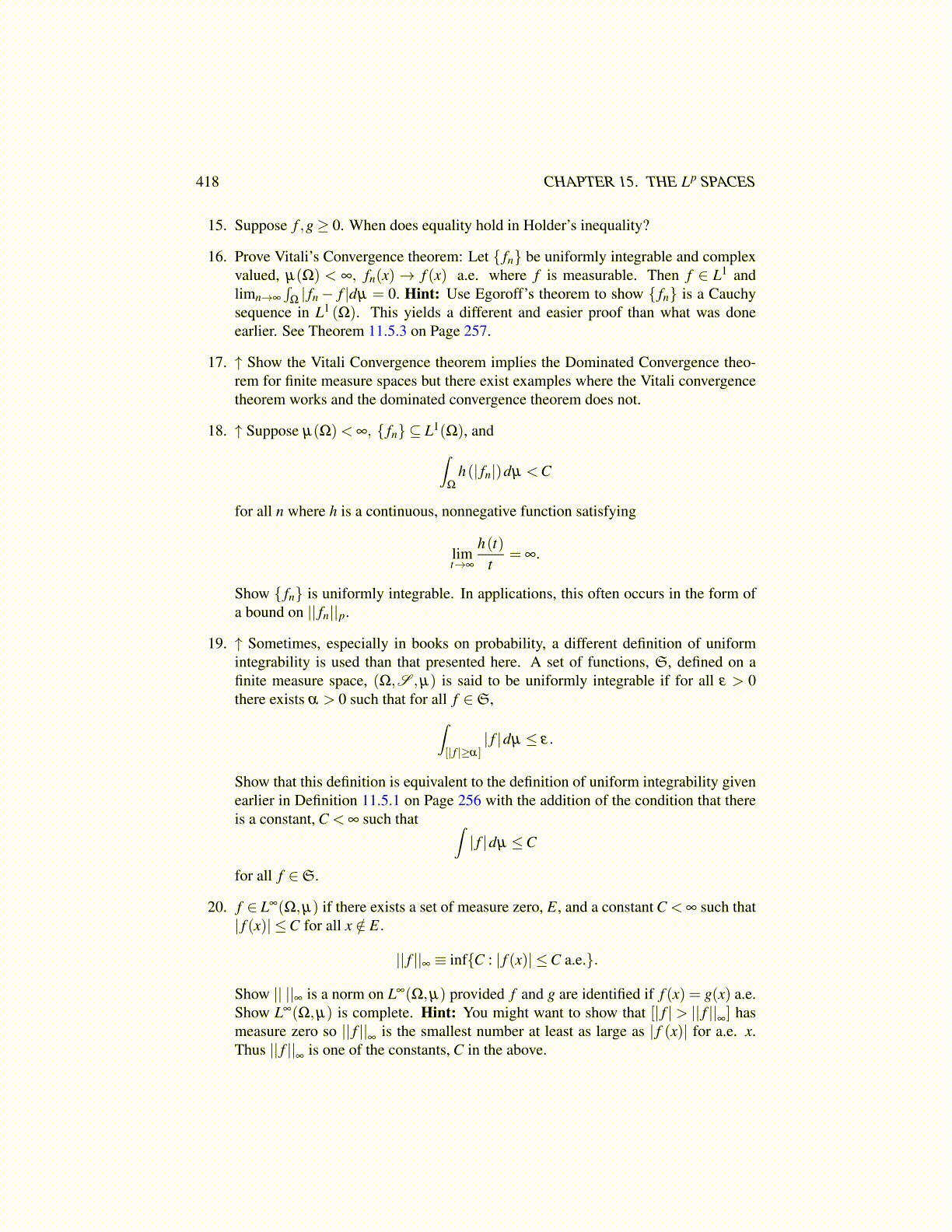
418 CHAPTER 15. THE Lp SPACES
15. Suppose f ,g≥ 0. When does equality hold in Holder’s inequality?
16. Prove Vitali’s Convergence theorem: Let { fn} be uniformly integrable and complexvalued, µ(Ω) < ∞, fn(x)→ f (x) a.e. where f is measurable. Then f ∈ L1 andlimn→∞
∫Ω| fn− f |dµ = 0. Hint: Use Egoroff’s theorem to show { fn} is a Cauchy
sequence in L1 (Ω). This yields a different and easier proof than what was doneearlier. See Theorem 11.5.3 on Page 257.
17. ↑ Show the Vitali Convergence theorem implies the Dominated Convergence theo-rem for finite measure spaces but there exist examples where the Vitali convergencetheorem works and the dominated convergence theorem does not.
18. ↑ Suppose µ(Ω)< ∞, { fn} ⊆ L1(Ω), and∫Ω
h(| fn|)dµ <C
for all n where h is a continuous, nonnegative function satisfying
limt→∞
h(t)t
= ∞.
Show { fn} is uniformly integrable. In applications, this often occurs in the form ofa bound on || fn||p.
19. ↑ Sometimes, especially in books on probability, a different definition of uniformintegrability is used than that presented here. A set of functions, S, defined on afinite measure space, (Ω,S ,µ) is said to be uniformly integrable if for all ε > 0there exists α > 0 such that for all f ∈S,∫
[| f |≥α]| f |dµ ≤ ε.
Show that this definition is equivalent to the definition of uniform integrability givenearlier in Definition 11.5.1 on Page 256 with the addition of the condition that thereis a constant, C < ∞ such that ∫
| f |dµ ≤C
for all f ∈S.
20. f ∈ L∞(Ω,µ) if there exists a set of measure zero, E, and a constant C < ∞ such that| f (x)| ≤C for all x /∈ E.
|| f ||∞ ≡ inf{C : | f (x)| ≤C a.e.}.
Show || ||∞ is a norm on L∞(Ω,µ) provided f and g are identified if f (x) = g(x) a.e.Show L∞(Ω,µ) is complete. Hint: You might want to show that [| f |> || f ||
∞] has
measure zero so || f ||∞
is the smallest number at least as large as | f (x)| for a.e. x.Thus || f ||
∞is one of the constants, C in the above.